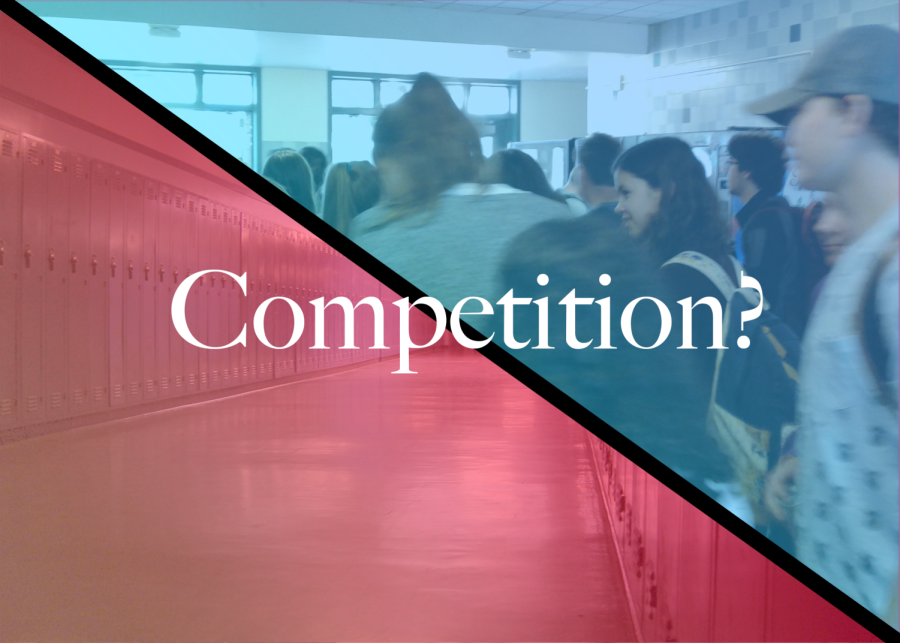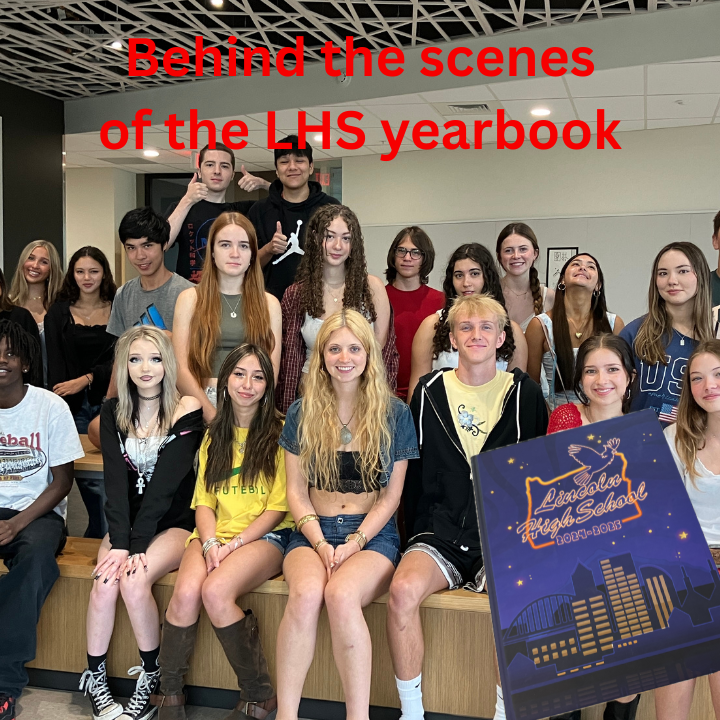Opinion: Is competition good for students?
Editors Cole Tomlinson and Issac Coltman argue whether a competitive school environment creates good or bad outcomes for students.
March 13, 2022
Competition is beneficial for students
By Cole Tomlinson
One word that comes to mind when I think of Lincoln High School: competition. Lincoln has an environment of competition, high expectations and a fear of failure. I think this is a good thing.
Lincoln’s competitive nature is immediately apparent right upon entering the school. From the trophy racks that line the hallways to the banners in the gym, it’s clear that this school likes to succeed. It is this desire that makes Lincoln the sublime high school it is today.
The International Baccalaureate (IB) program promotes competitive pre-collegiate learning, which I believe benefits all who participate. According to the IB website, the program helps “develop strong academic, social and emotional characteristics.” The competitive nature at Lincoln is exemplified by the students who choose to participate in this demanding academic program.
According to the Lincoln website, “The LHS IB programme is the largest in the state of Oregon… Every Fall, Lincoln’s IB graduates matriculate to a diverse array of colleges and universities.” Participating in IB culminates in the acceptances to selective colleges as a final prize for their hard work.
Competition, however, is far from just academic. It expands to all corners of the Lincoln community. For example, students, regardless of any academic program, love to compete through annual “class competitions” (formerly “color wars”) and Hoopfest.
I think these competitions successfully bring students together through a shared common interest.
Senior Anna Loy, who headed Hoopfest this year, sees it as a quintessential example of Lincoln culture.
“Hoopfest gets a lot of spectators and a lot of hype around the school, so there is an element where I think teams want to win for the bragging rights at the end,” she said. “This is partly what makes Hoopfest so fun.”
________________________________________________________________
Competition incites imitation, discourages self-expression
By Issac Coltman
My dream is that every Lincoln graduating class will not be defined by checkboxes, but contain a unique band of individuals—artists, athletes, orators, world-class unicyclists—completely unbound from the expectations of others. Bottom line, that dream cannot exist in a school bogged down by competitive culture.
Here’s the problem with scholastic competition: it incites imitation rather than self-expression.
Appearance reigns supreme. The last thing people are concerned with when signing up for Theory of Knowledge classes, Constitution Team or the National Honors Society is the point that’s most important: actually caring about any of it.
It shouldn’t be about “looking good to colleges,” because that’s a ridiculous standard. Do some people have a passionate fire for National Honors Society meetings? Sure! Is that “some” everyone who attends them? No.
So, given the chance, here’s what I would tell every high school student concerned about “looking good”: greatness cannot arise from the pressure of your parents, teachers or peers— but only a deep seated passion within yourself.
If you cannot find a drive in what you do, then stop. Don’t saunter on a well-traveled path in an effort to “look good.” That’s setting yourself up for failure. There’s something out there, dear high school student, that will really speak to you.
I believe you just need to find it.
What do you think about competitive culture? Send your thoughts to [email protected].




